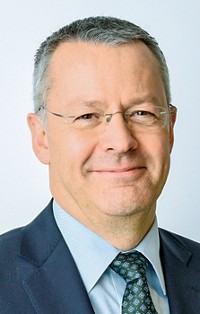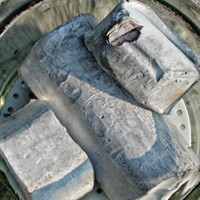Advertisement
Grab your lab coat. Let's get started
Welcome!
Welcome!
Create an account below to get 6 C&EN articles per month, receive newsletters and more - all free.
It seems this is your first time logging in online. Please enter the following information to continue.
As an ACS member you automatically get access to this site. All we need is few more details to create your reading experience.
Not you? Sign in with a different account.
Not you? Sign in with a different account.
ERROR 1
ERROR 1
ERROR 2
ERROR 2
ERROR 2
ERROR 2
ERROR 2
Password and Confirm password must match.
If you have an ACS member number, please enter it here so we can link this account to your membership. (optional)
ERROR 2
ACS values your privacy. By submitting your information, you are gaining access to C&EN and subscribing to our weekly newsletter. We use the information you provide to make your reading experience better, and we will never sell your data to third party members.
Business
Improving Profitability
Newly independent from Total, Arkema pushes to boost performance, raise profits
by Rick Mullin
August 7, 2006
| A version of this story appeared in
Volume 84, Issue 32

Part of the trick, according to Bernard Boyer, executive vice president for strategy at Arkema, is to hit the ground running.
Arkema, the industrial chemicals company officially spun off by French oil giant Total in May, is the latest in a run of chemical launches, several of which have been less than successful. But Boyer says his company, which manufactures a mix of commodity and specialty products, is unlikely to run into problems encountered by Celanese, Rhodia, and Solutia, because the spinning off started, with new management in place, two years prior to Arkema's ultimate break from Total.
In fact, Boyer resists comparisons to these companies. Arkema, he notes, did not venture into the troubled contract pharmaceutical chemicals market, as did Rhodia and Solutia. Nor are its product lines and markets aligned with those of these firms. Arkema, which operates around a distinct integration of upstream and downstream products, has its own challenges and its own story to tell, Boyer says.
Broadly, it is the story of a chemical operation making the transition from being a noncore wing of a large oil company to an independent, $7.3 billion-per-year chemical company with no safety net and a need to improve profitability. The story begins with Total's strategy for paring down its chemicals business.
When Total acquired the rival oil companies Elf and Fina at the end of 2000 and set to work on integrating them, it determined that the resulting conglomeration of chemical operations didn't work. "Total's strategy was to simplify the chemical portfolio and sell assets," says Boyer, who has worked in financial management, specializing in acquisitions and divestitures, beginning in 1992 at Elf Atochem. "They set an initial target of disposing of $1.8 billion in assets. It took roughly three years to complete the program."
The biggest divestiture was of the SigmaKalon paints division. Total also sold packaging films and fluorinated specialties, but this wasn't enough, Boyer says. "Total then took the view that it would be better to put together a coherent and integrated portfolio of businesses and try and float it by way of a spin-off rather than try and continue to sell assets piece by piece over a certain number of years."
There was a logical fit to a remaining group of industrial chemical businesses, Boyer says. "It was not a random selection of assets. It was put together so that at the end of the day it would be a company with a coherent and integrated portfolio."
At the base of the structure is Arkema's vinyl products business, called chlorochemicals, which is an integrated operation running from chlorine production to polyvinyl chloride conversion. This business also produces fluorinated compounds.
Chlorochemicals feeds into Arkema's industrial chemicals unit, which includes acrylics, thiochemicals, and hydrogen peroxide. The third business unit, performance products, includes polyvinylidine fluoride, which is produced from fluorochemical monomers.
The new company started off with a strong balance sheet, featuring a 30% debt-to-equity ratio, Boyer notes. He adds that Total has also retained considerable liabilities associated with the former chemicals operations, including pension commitments in France, the U.S., and the U.K.
Arkema transferred environmental responsibility for discontinued chemical sites in France to Total, and the oil company will assist in paying remediation costs in the U.S. Total will also cover 90% of any fine over $225 million resulting from current European Union investigations into hydrogen peroxide price-fixing.
All of this, Boyer contends, puts Arkema in a relatively strong position as it faces its first major challenge as an independent chemical firm. "Our profitability today is below our peers'," he says. "That's a fact. Profitability is not sufficient, and we have to address this issue." Arkema is moving on various fronts to meet a goal of a $100 million improvement in earnings before interest, taxes, depreciation, and amortization (EBITDA) by 2007.
For vinyl products, the approach is to reduce costs by shutting down operations at several sites but not closing any plants entirely. Notably, 50% of the production at the company's plant in Saint-Aubin, France, will be shuttered. The move will eliminate 523 jobs, nearly half of the headcount reduction planned by the end of 2007. The company, which is the number three PVC producer in Europe, will also expand several operations. "We are refocusing on best sites to expand and improve productivity," Boyer says. "We want to give ourselves the required assets to compete in this commodity market."
According to Boyer, about a third of Arkema's $380 million annual capital expenditures budget will be directed to rationalizing chlorine-related operations through next year.
For industrial chemicals, profitability is not as serious an issue, Boyer says. The business' ratio of EBITDA to sales is about 13%, compared with about 6.2% for Arkema overall in 2005. The firm is expanding hydrogen peroxide production in Canada and China. And it plans to boost acrylic production in France by 15% via plant debottlenecking, which he describes as a low-investment, low-fixed-cost approach to keeping up with market demand. "In industrial chemicals, we are not restructuring," he says. "We are developing our business in a profitable way."
Performance products pose more of a challenge. "Profitability is not where it should be," Boyer says. Rather than cost-cutting, here the company sees a solution in innovation. Arkema spends a little more than half of its R&D budget on the performance products business, which accounts for just about one-third of sales.
"We are not going to reinvent chlorine or caustic soda," Boyer says. Instead, the company has been focusing on high-tech, niche technologies such as carbon nanotubes, a field in which Arkema has a partnership with Richardson, Texas-based Zyvex to develop commercial applications. Partnerships play a key role in performance products, he says, pointing to a venture in the feed additive methionine with Novus in Beaumont, Texas.
In a recent report, stock analysts at Merrill Lynch lauded Arkema's strong starting balance sheet but expressed concern about the cash drain in PVC and acrylics since last year. The report also cites the rising cost of operations in performance products, suggesting the need for price increases and cost cutting in that unit as well.
In general, though, Merrill Lynch considers independence from Total to be a real plus. The analysts write that the break has the potential to "unlock a more performance-driven culture," just as happened at Lanxess following that company's spin-off from Bayer.
Indeed, Boyer says the new, more entrepreneurial Arkema has programs to address analyst concerns in all three business units. "Arkema's management was appointed at the end of 2004, so we had the time to prepare ourselves for the spin-off," he says. "Nothing changed on May 18. We've been in this mind-set from the very beginning."
He admits that operating outside of Total will change things. "I'm not suggesting that we weren't performing well as part of Total. But now, what we do will be seen. It will have a direct impact on the performance of the company." Boyer says, however, that Arkema has the plans in place and the financial base necessary to meet its goal of boosting profits.
"When we went to the market, we did not tell them what we would do someday," Boyer says. "We told them what we initially did as a management team. We discussed our strategy and objectives and the timing we need to finalize implementation."
That implementation will now be done on Arkema's own clock under the stock market's close scrutiny. "That is different," he says.




Join the conversation
Contact the reporter
Submit a Letter to the Editor for publication
Engage with us on Twitter